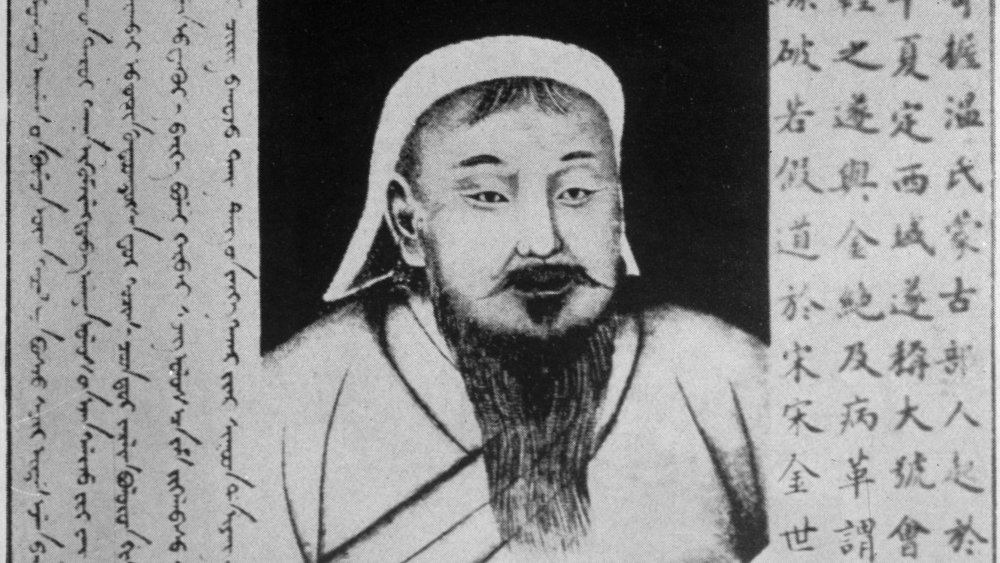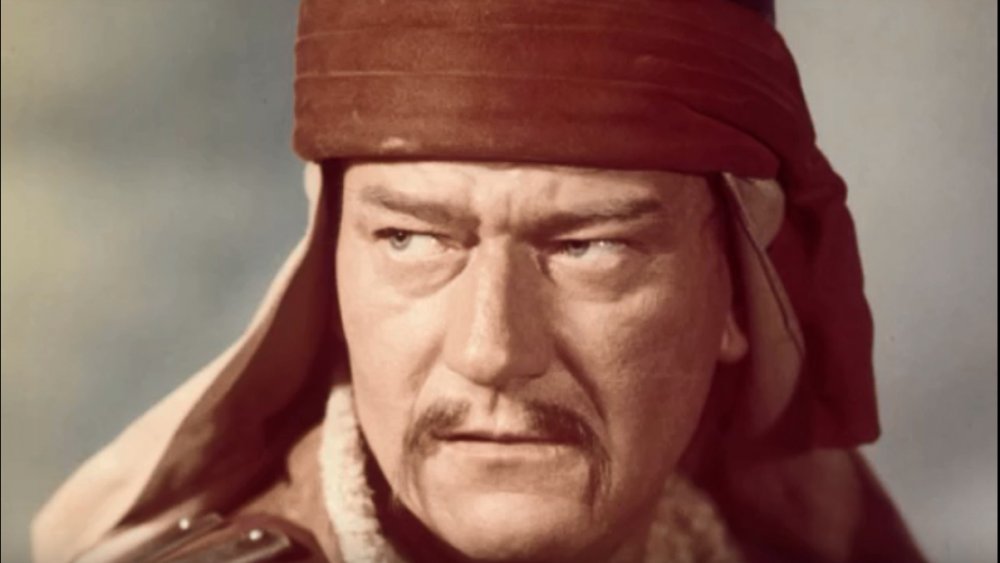How Many Wives Did Genghis Khan Really Have?
Genghis Khan. Not to be confused with his grandson, Kublai Khan. Or with Benedict Cumberbatch.
There's not a lot of census data available for 12th century Mongolia, drat the luck. He's usually pegged at being born around 1162, and had the good fortune to survive to adulthood, "adulthood" being slightly different than present-day "old enough to drink" adulthood. He was initially named Temujin, and because the names weren't confusing enough already, was a descendent of Khabul Khan. No record of anyone feeling like they had to call him Johnson.
Wife #1, the only one who really counted, actually, said "I Do," or something like it, when Temujin was around 16. They had four sons together, and although Genghis is universally credited with "many" other wives and "many" other children, those were the four who counted in terms of succeeding to the throne. Or succeeding in not dying prematurely.
Genghis Khan Wayne
Contemporary accounts suggest hundreds of wives and hundreds of children, with a preponderance of male offspring. Modern DNA studies indicate that one in 200 men alive today are direct descendants. (Admit it: You're humming "We Are Family," aren't you.)
His brilliance was manifested in his realization that a united Mongol people could accomplish much more — you know, like conquering stuff – than individual tribes. He amassed a, well, massive army and proceeded to do exactly that: conquering stuff, boiling defeated chieftains alive, and generally larking about, but in a really focused way. "Genghis" was actually a title, bestowed on him by tribal leaders whom he did not boil alive, and it means "universal ruler."
Besides being a brilliant military tactician, Temujin was an armchair theologian, telling one of his enemies, "If you had not committed great sins, God would not have sent a punishment like me upon you."
Temujin lasted until 1227, resulting in a truly epic funeral. He divided his empire among his four sons by his first wife, the four sons who numbered among "many children" from "many wives." No census data. Just "many."

